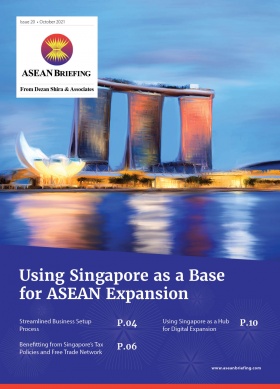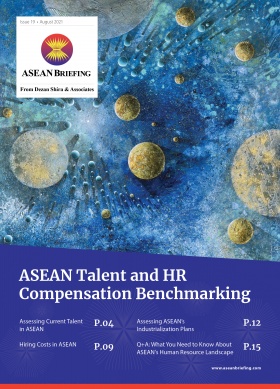Amendments to Malaysia’s Employment Act to Come into Force January 1, 2023
The proposed amendments to Malaysia’s Employment Act are scheduled to come into force on January 1, 2023.
The amendments allow employees to apply for flexible working arrangements, increase paternity leave, and provide greater protection against all types of harassment and discrimination, among others.
The Employment Act, however, does not cover all employees. The Act only applies to; employees earning less than 2,000 ringgit (US$441) per month or below; manual laborers; domestic servants; and those employed in the maintenance of mechanically propelled vehicles or on seagoing vehicles.
On October 25, 2021, the proposed amendments to Malaysia’s Employment Act were tabled for its first reading for parliament and were supposed to be implemented on September 1, 2022. However, after further discussions with industry players and other stakeholders, the Human Resources Minister will defer the implementation until January 1, 2023.
The amendments include extending pregnancy and maternity protection, allowing employees to apply for flexible working arrangements, and creating a new offense for ‘forced labor, among others. The changes aim to bring the Act to ‘international standards’ as required by the Trans-Pacific Partnership (TPP), the International Labor Organization (ILO), and the Malaysia-United States Labor Consistency Plan.
Who is protected under the Employment Act?
The protections provided under the Employment Act only apply to these categories of employees:
- Those earning less than 2,000 ringgit (US$441) per month or below;
- Employees employed as manual labor or as supervisors of manual laborers, regardless of salary;
- Employees engaging in the maintenance and operation of mechanically propelled vehicles;
- Those employed as domestic servants; and
- Those employed on seagoing vehicles (subject to certain conditions).
Employees not covered under the Employment Act will be governed by the terms set out in their employment contracts.
What are the proposed amendments to the Act?
Calculation of wages for an incomplete month
The amendments include a formula for calculating the wages of an employee who works less than one month.
(Monthly wages/number of days in the particular wage period) x Number of days eligible in the wage period)
Under the Act, monthly wages are calculated by a denominator of 26 days to represent the number of days the employee is required to work in one month.
Court orders for payment due
If an employer is convicted for an offense related to the payment of wages of employees, then the court (who the employer) can order the employer to pay the amount due to the employees.
Failure to comply can result in the court issuing a warrant for the sale of the employer’s assets to pay the amount, or by way of a fine.
Presumption of who is an employer and employee
The amendments introduce a provision whereby in the absence of a written work contract, it shall be presumed that a person is an employee if:
- Their manner of work is in the control or direction of another person;
- They are provided tools, equipment, and materials to execute work;
- They perform work for the sole benefit of another person;
- Their hours of work are in the control or direction of another person;
- The person’s work constitutes an integral part of a business; or
- Payments are paid to the person in return for conducting work, at regular intervals and where such payments constitute the majority of the person’s income.
Pregnancy and maternity protection
Under the amendments, the Act proposes that paid maternity leave be extended from 60 to 90 days, although this is still shorter than the 98 days recommended by the ILO.
The amended Act seeks to prohibit the dismissal of a pregnant employee who is suffering from an illness arising from their pregnancy. This does not include dismissal on the grounds of misconduct, closure of the business, or the willful breach of the employment contract.It will be up to the employer to prove that the termination is not on the grounds of the pregnancy.
Further, the female employee, with the consent of her employer, may commence work during the maternity leave if she has been certified to do so by a doctor.
Paternity leave
The new Act proposes that married male employees are entitled to three consecutive days of paternity leave for each confinement (birth), up to five confinements (but irrespective of the number of spouses).
The employee must have been employed for at least 12 months and have notified his employer at least 30 days before the expected confinement.
Employment of foreign employees
An employer must obtain approval from the Director-General of Labor (DGL) if they want to employ a foreign employee. Failure to do so could mean employers would be liable to a fine of up to 100,000 ringgit (US$23,900) or imprisonment of up to five years.
Currently, employers are only required to provide the DGL with the particulars of the foreign employee within 14 days of employment.
Flexible working arrangements
A new proposal will allow employees to apply for flexible working arrangements to vary their working hours, place of work, or days. The application must be submitted to the employer in writing, and within 60 days from when the application is received, the employer will inform the employee if their request is approved.
Working hours
The Act proposes a reduction in the number of working hours to 45 hours per week from 48 hours.
Contract for labor
The amendments impose an obligation for contractors to provide a work contract in writing for laborers. Such document for inspection by the Director General and failure to do so can result in a fine of up to 50,000 ringgit (US$11,047).
Employment discrimination disputes
Under the Act, the DGL will be given the power to inquire and decide any dispute between an employee and their employer regarding matters related to discrimination in employment. If the DGL finds the employer has committed an offense, they may be liable to a fine of up to 50,000 ringgit (US$11,900). In the case of a continuing offense, the employer may be liable to a fine of up 1,000 ringgit (US$238) per day.
Increased fine for offenses related to sexual harassment
If an employer fails to inquire and address complaints of sexual harassment, they can be liable to fines ranging from 10,000 ringgit (US$2,209) and 50,000 ringgit (US$11,047).
Employers are also obligated to provide a notice to raise awareness of sexual harassment (similar to health and safety notices).
Forced labor
The act aims to outlaw bonded or forced labor by making it an offense for an employer to deceive or threaten an employee to do any activity or work. If found guilty, the employer could be liable to a fine of up to 100,000 ringgit (US$22,093) or imprisonment of up to two years, or both.
Apprenticeships
An apprenticeship must be clearly defined in the work contract and is for a period of a minimum of six months or up to 24 months.
About Us
ASEAN Briefing is produced by Dezan Shira & Associates. The firm assists foreign investors throughout Asia and maintains offices throughout ASEAN, including in Singapore, Hanoi, Ho Chi Minh City, and Da Nang in Vietnam, Munich, and Esen in Germany, Boston, and Salt Lake City in the United States, Milan, Conegliano, and Udine in Italy, in addition to Jakarta, and Batam in Indonesia. We also have partner firms in Malaysia, Bangladesh, the Philippines, and Thailand as well as our practices in China and India. Please contact us at asia@dezshira.com or visit our website at www.dezshira.com.
- Previous Article Opportunities for Saudi Businesses in Indonesia
- Next Article Thailand’s Islamic Economy: Sourcing and Consumer Market Opportunities







